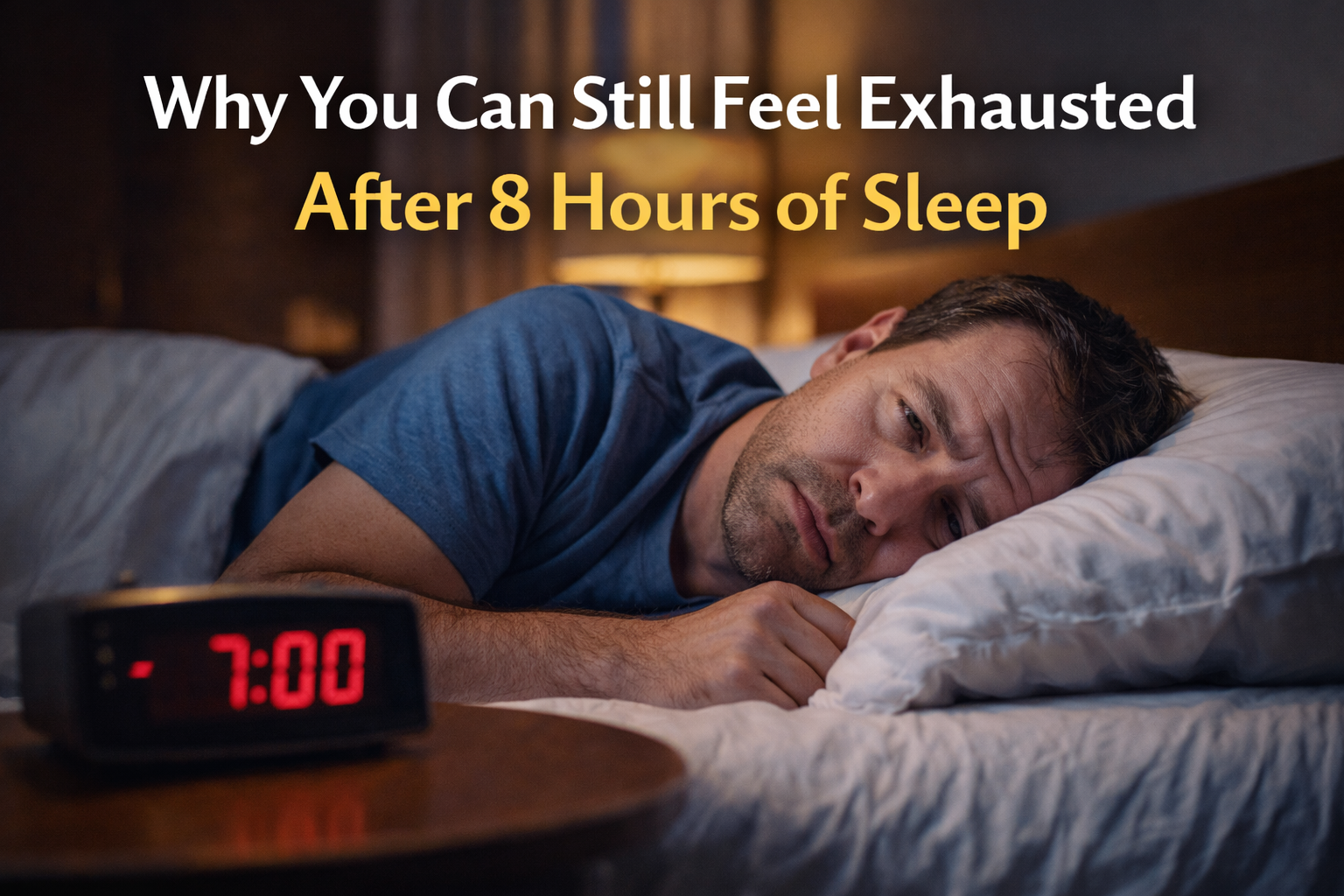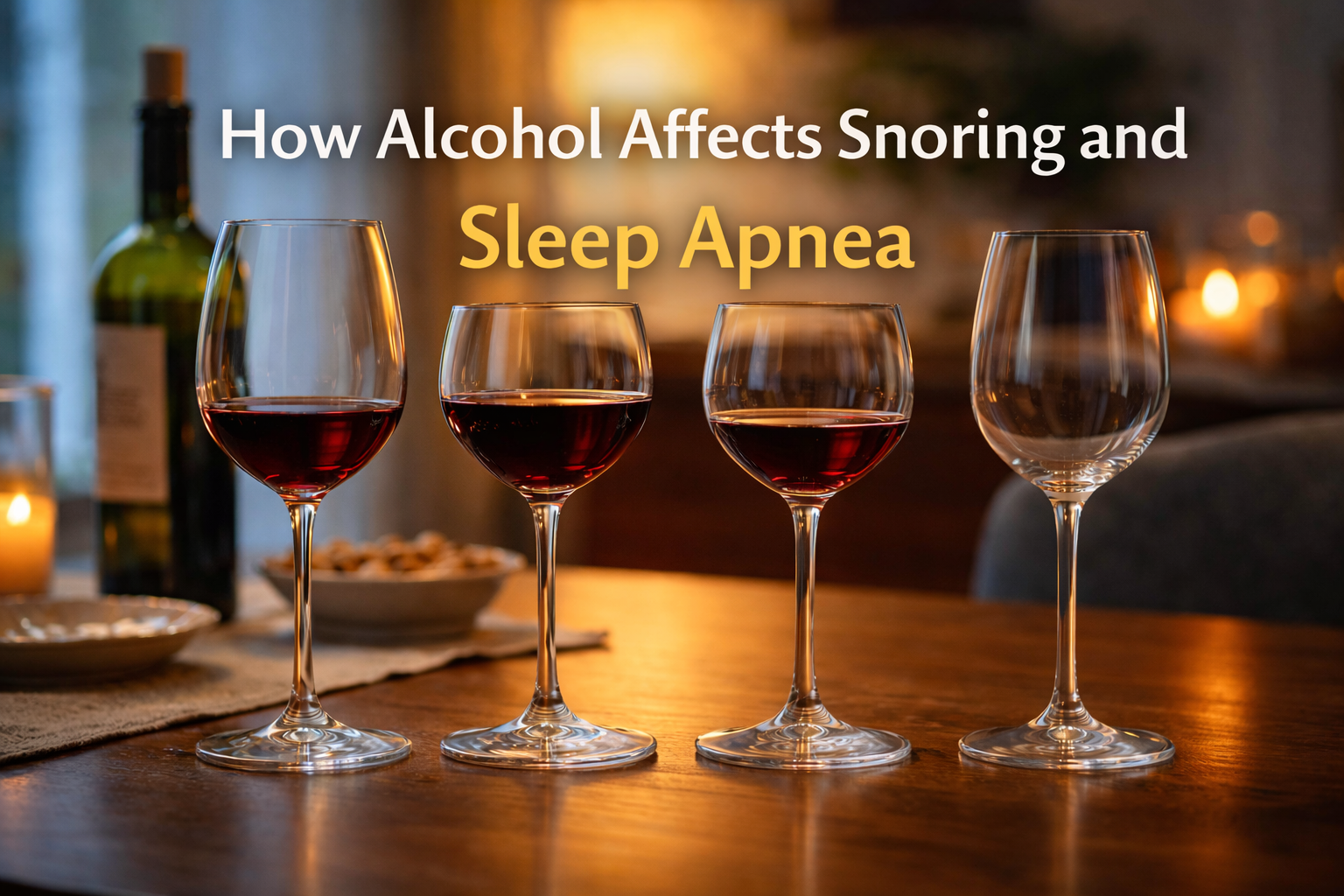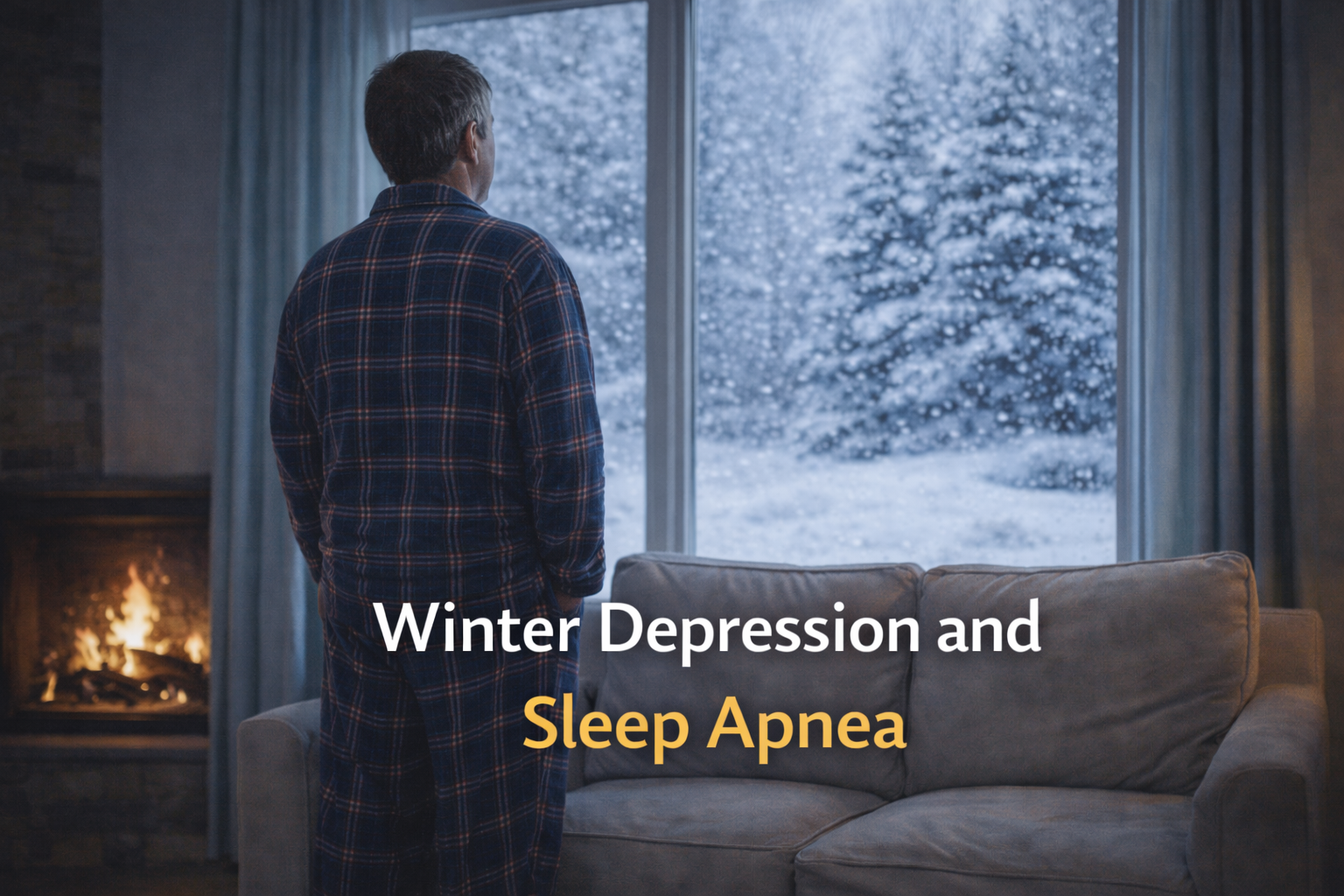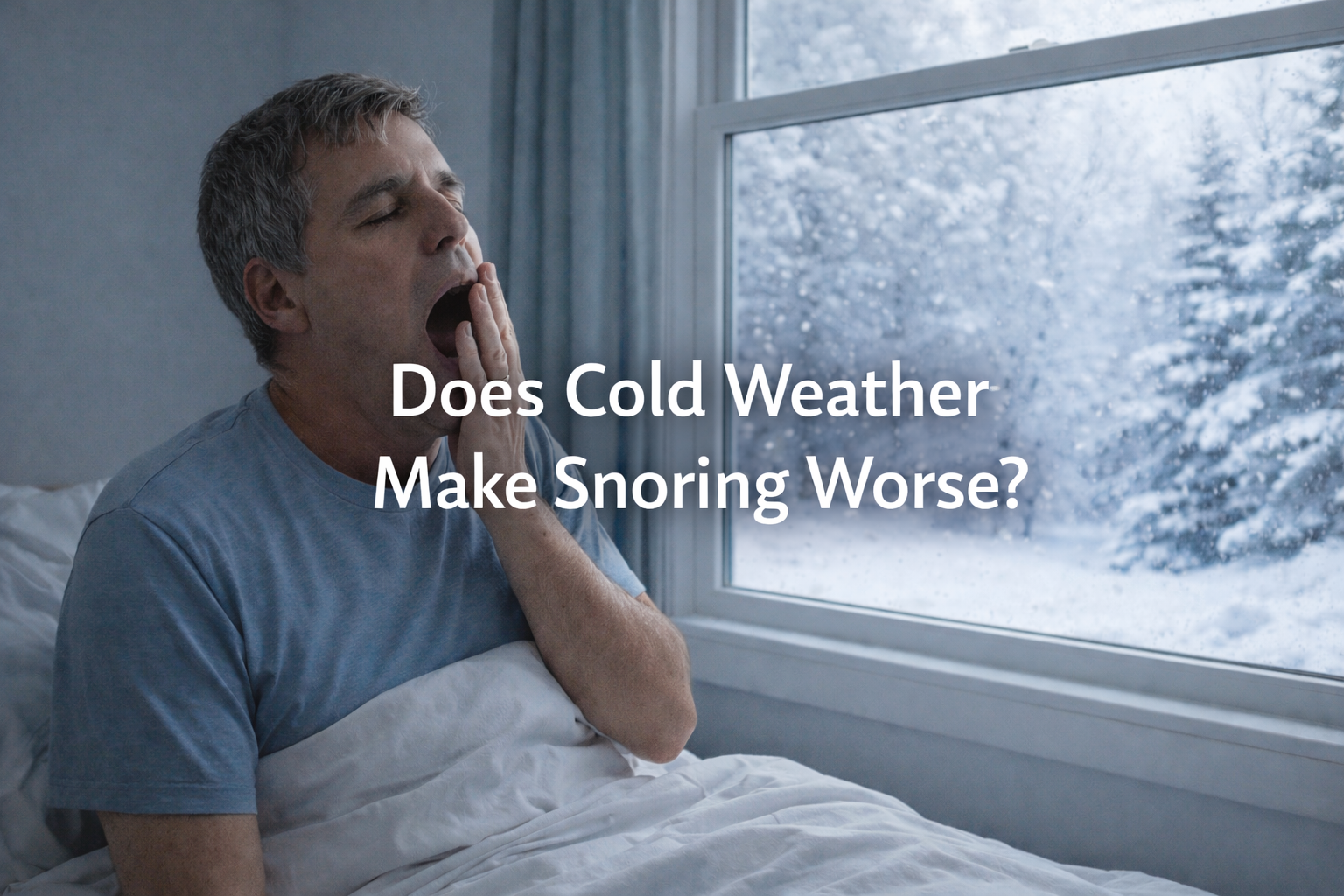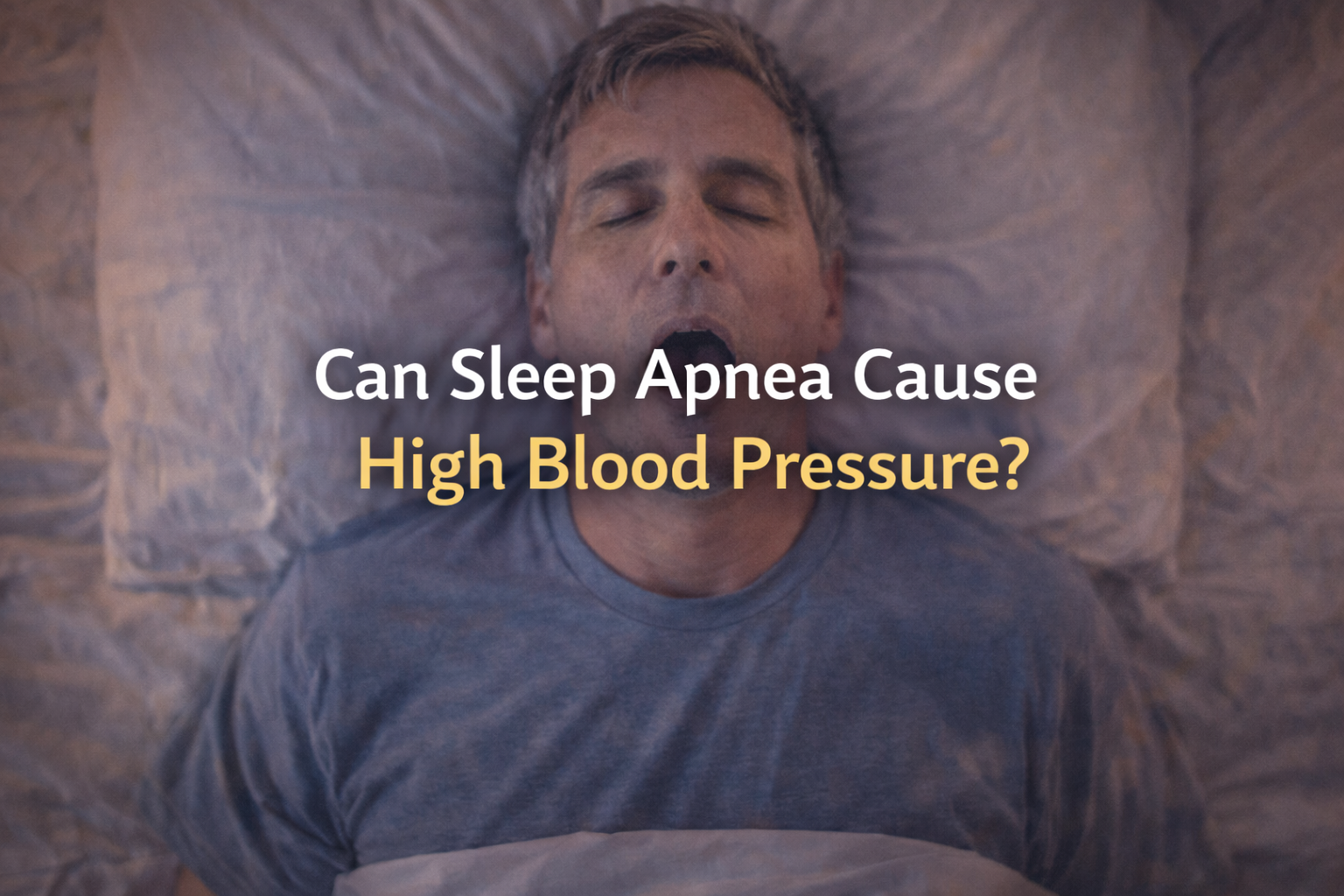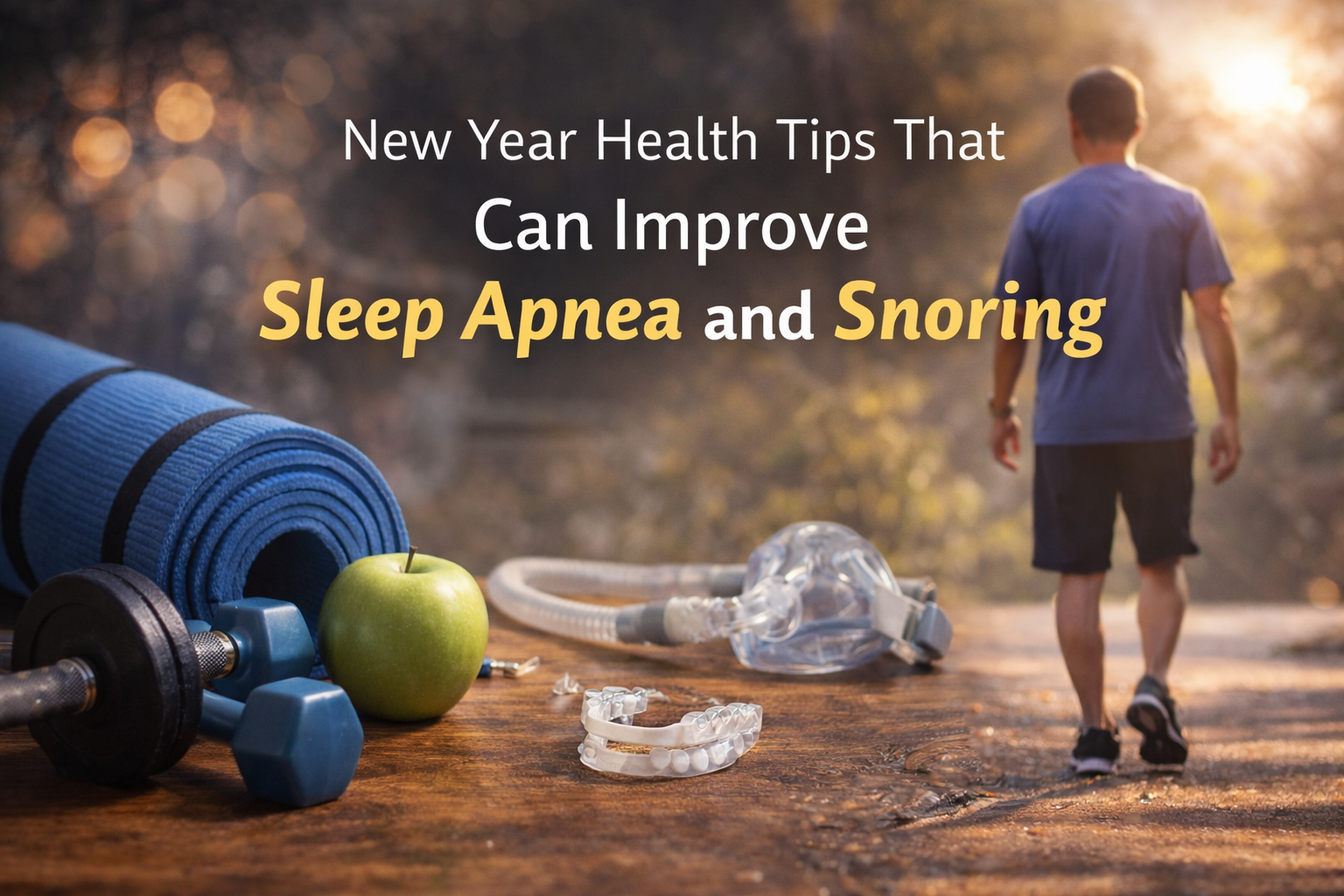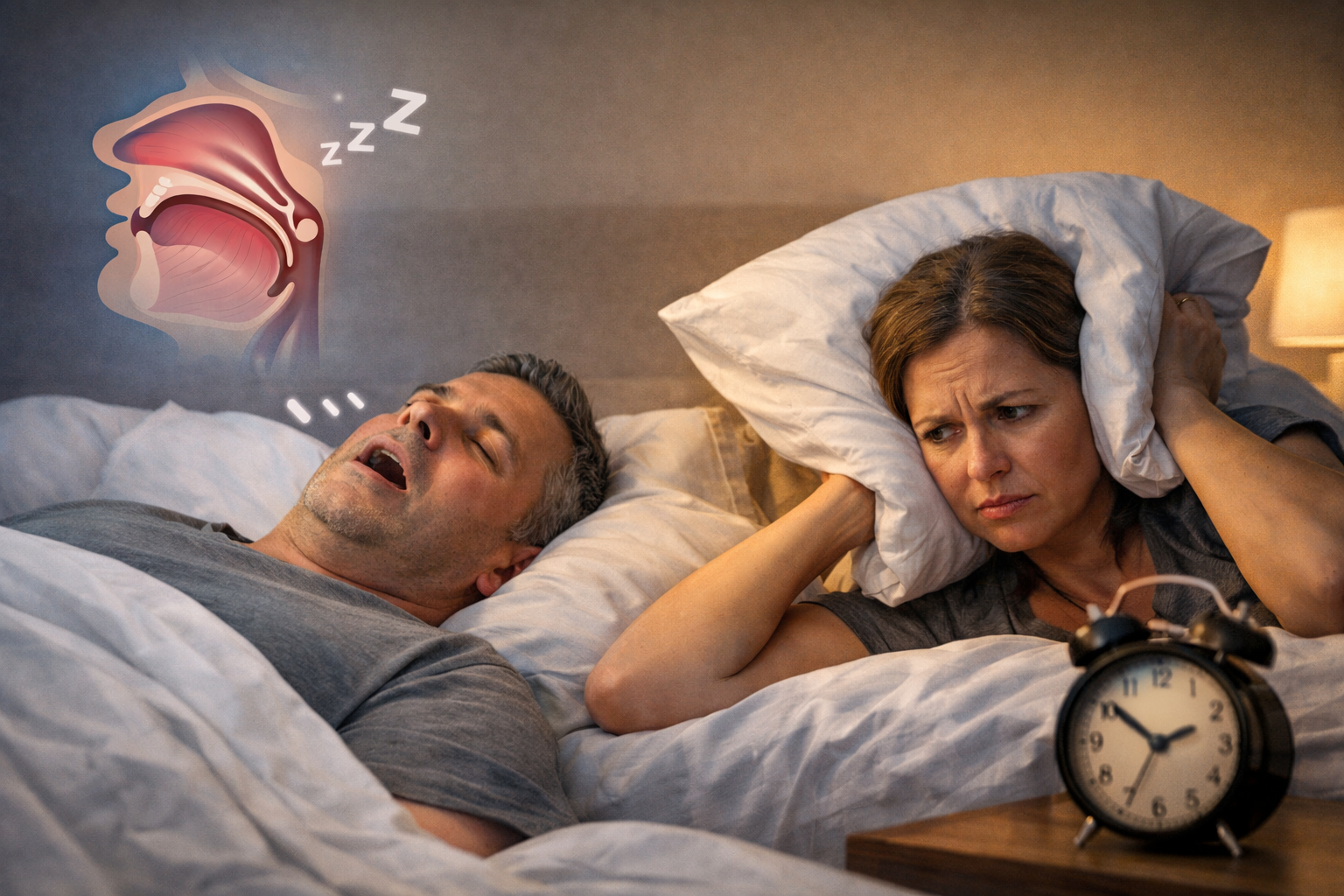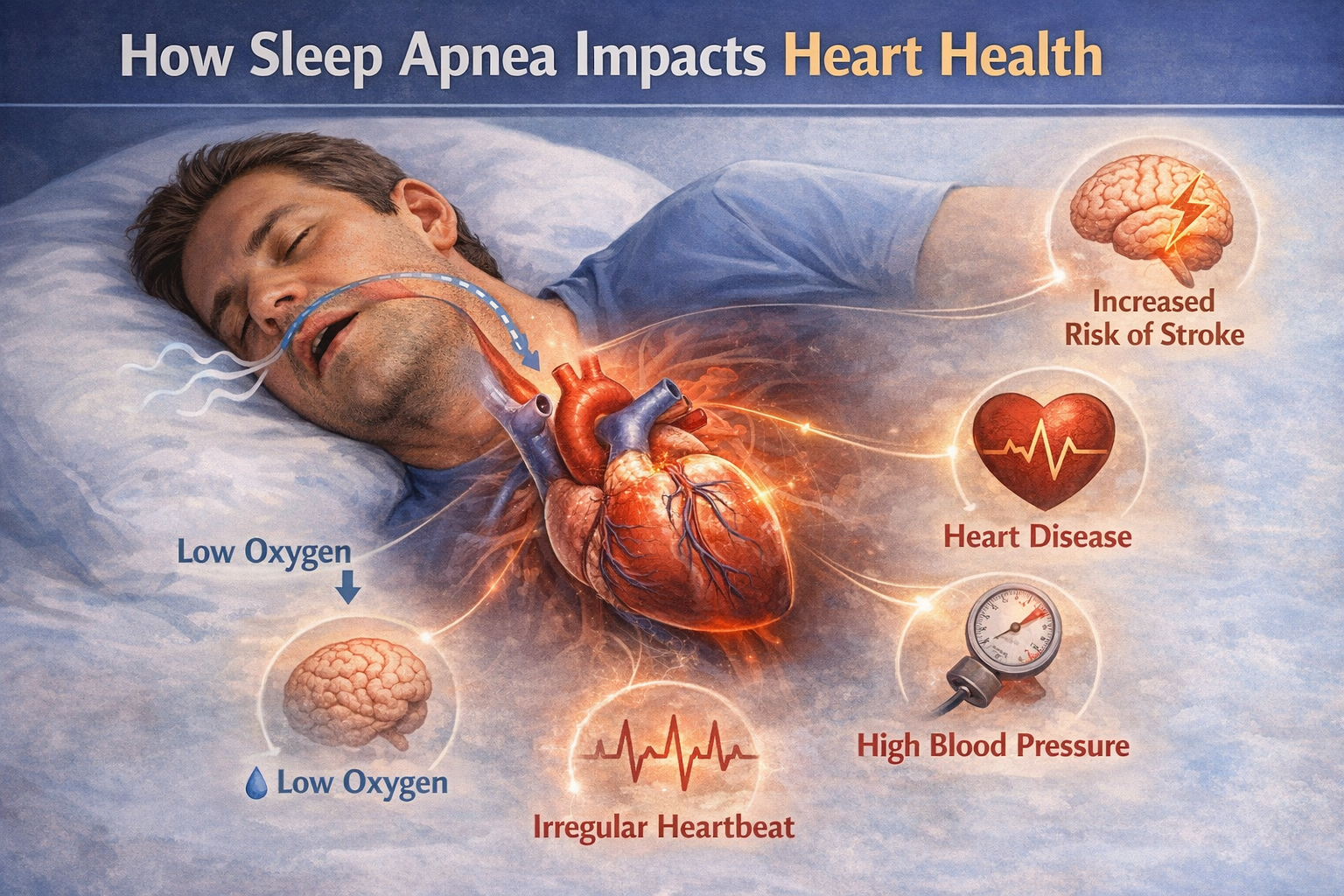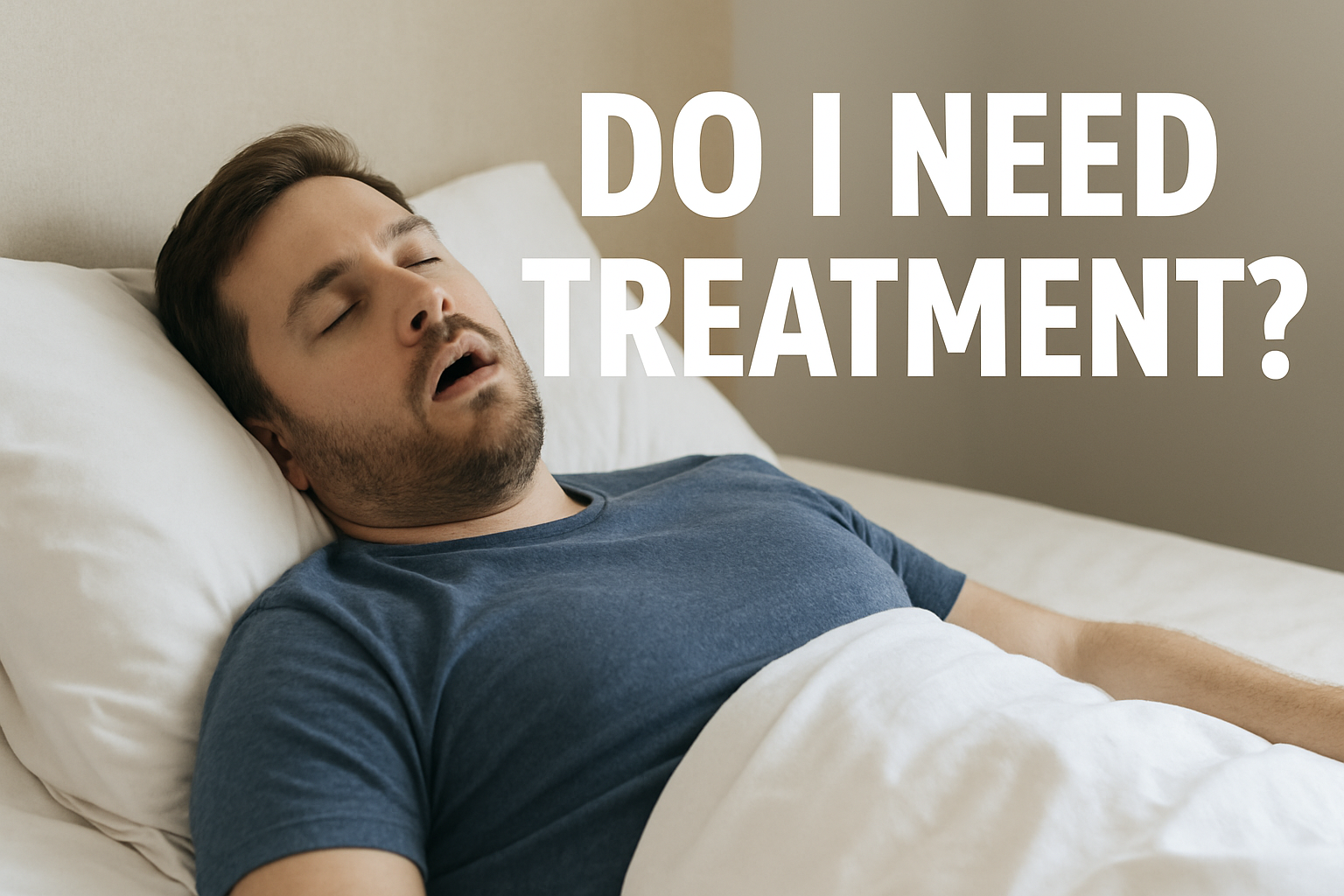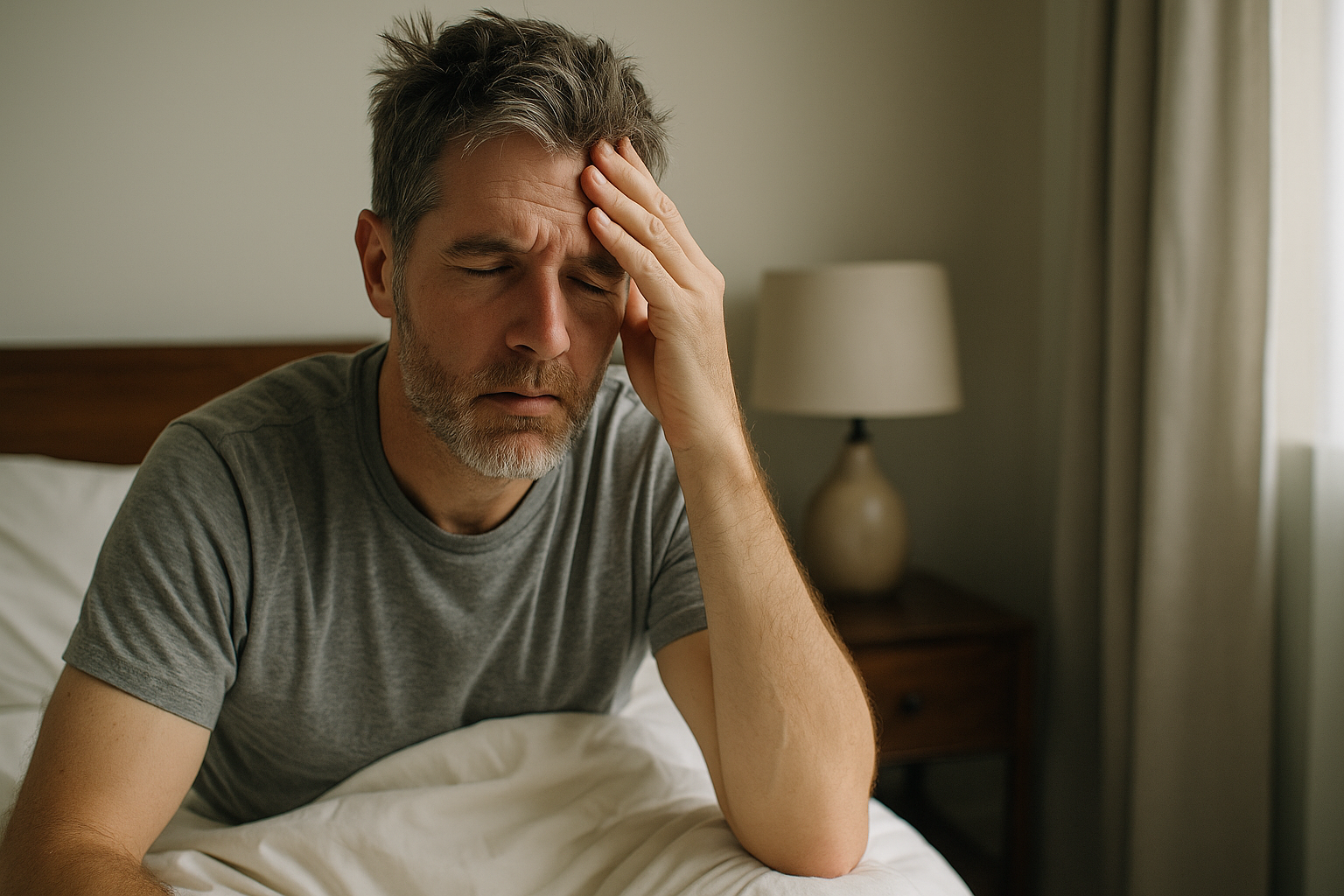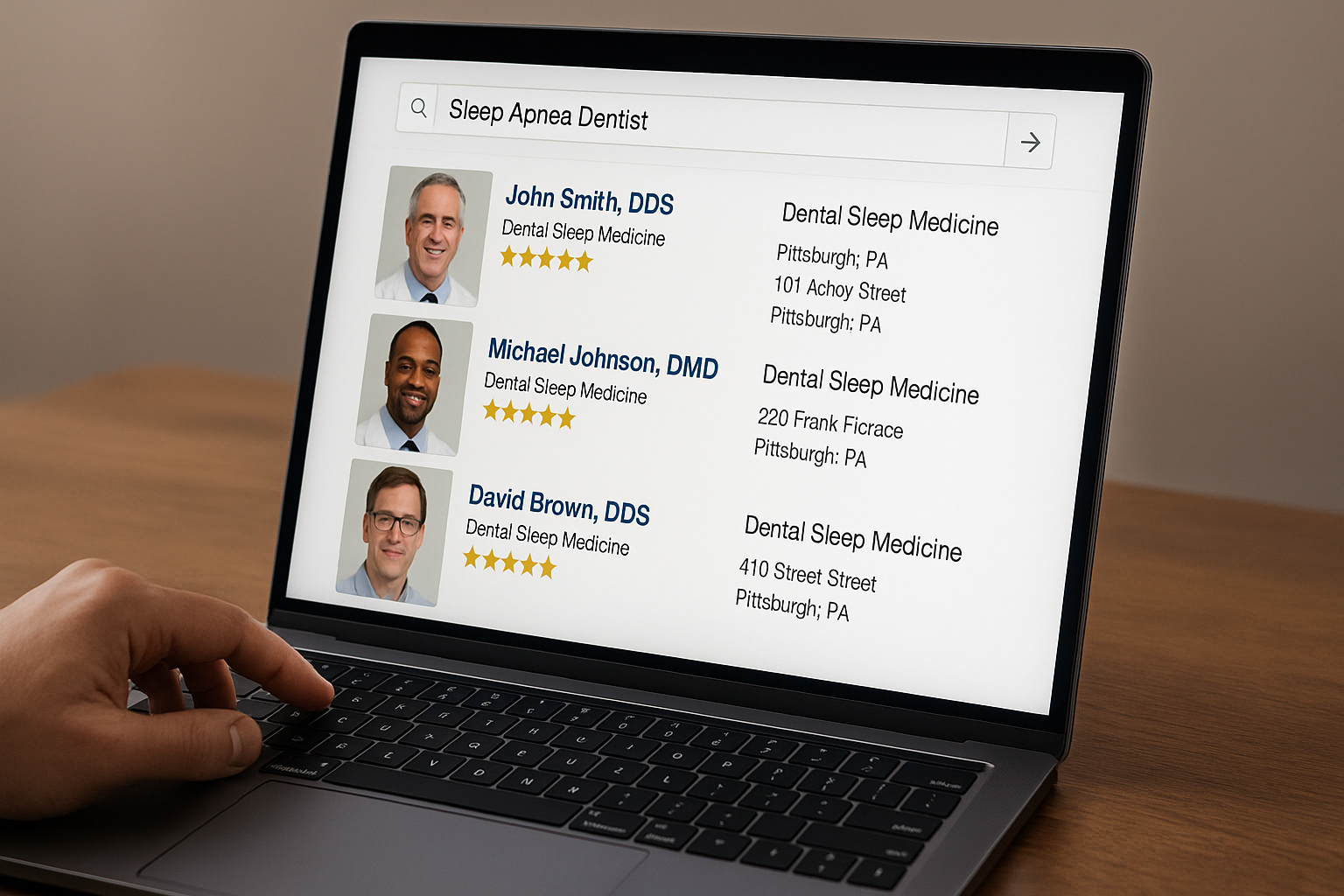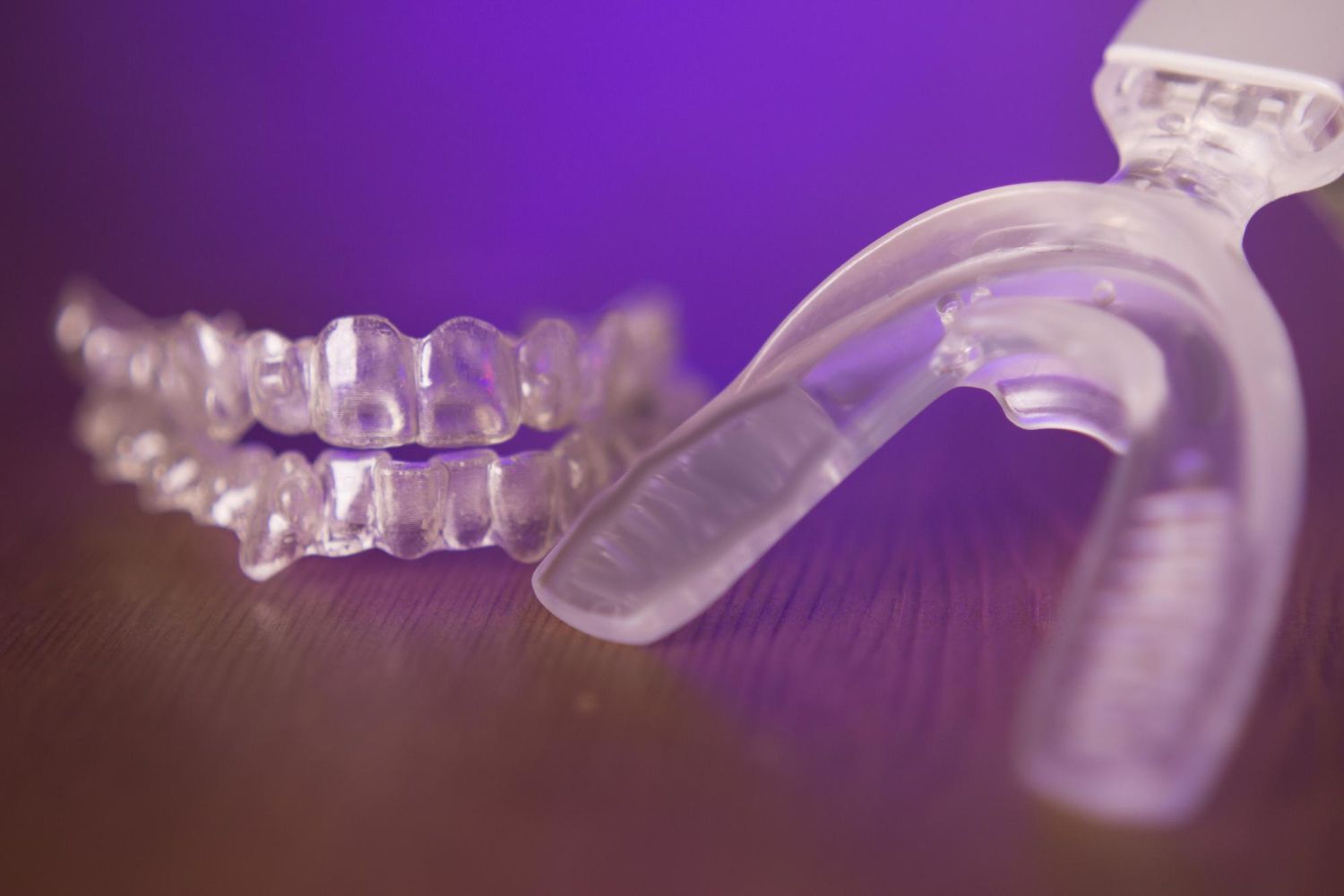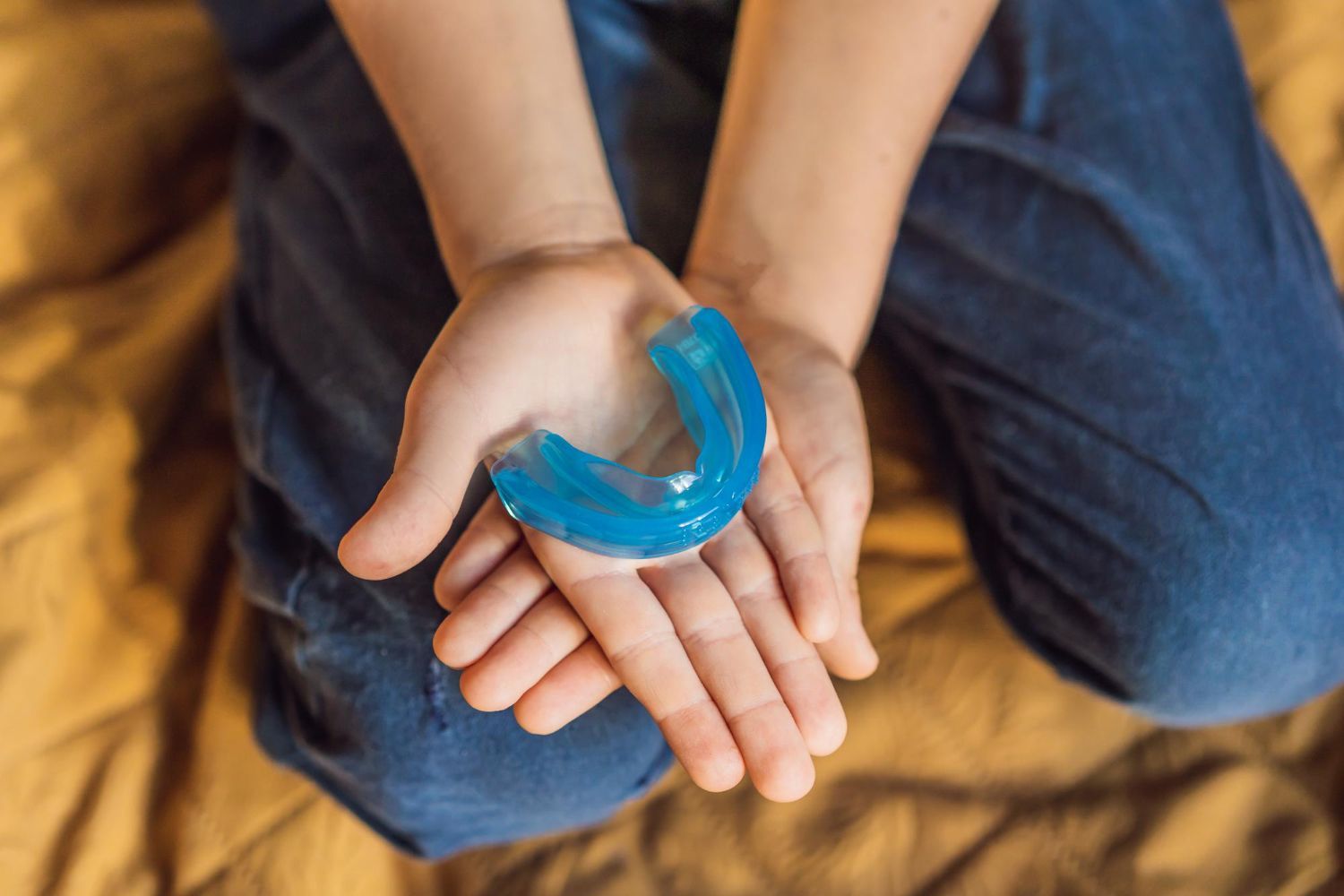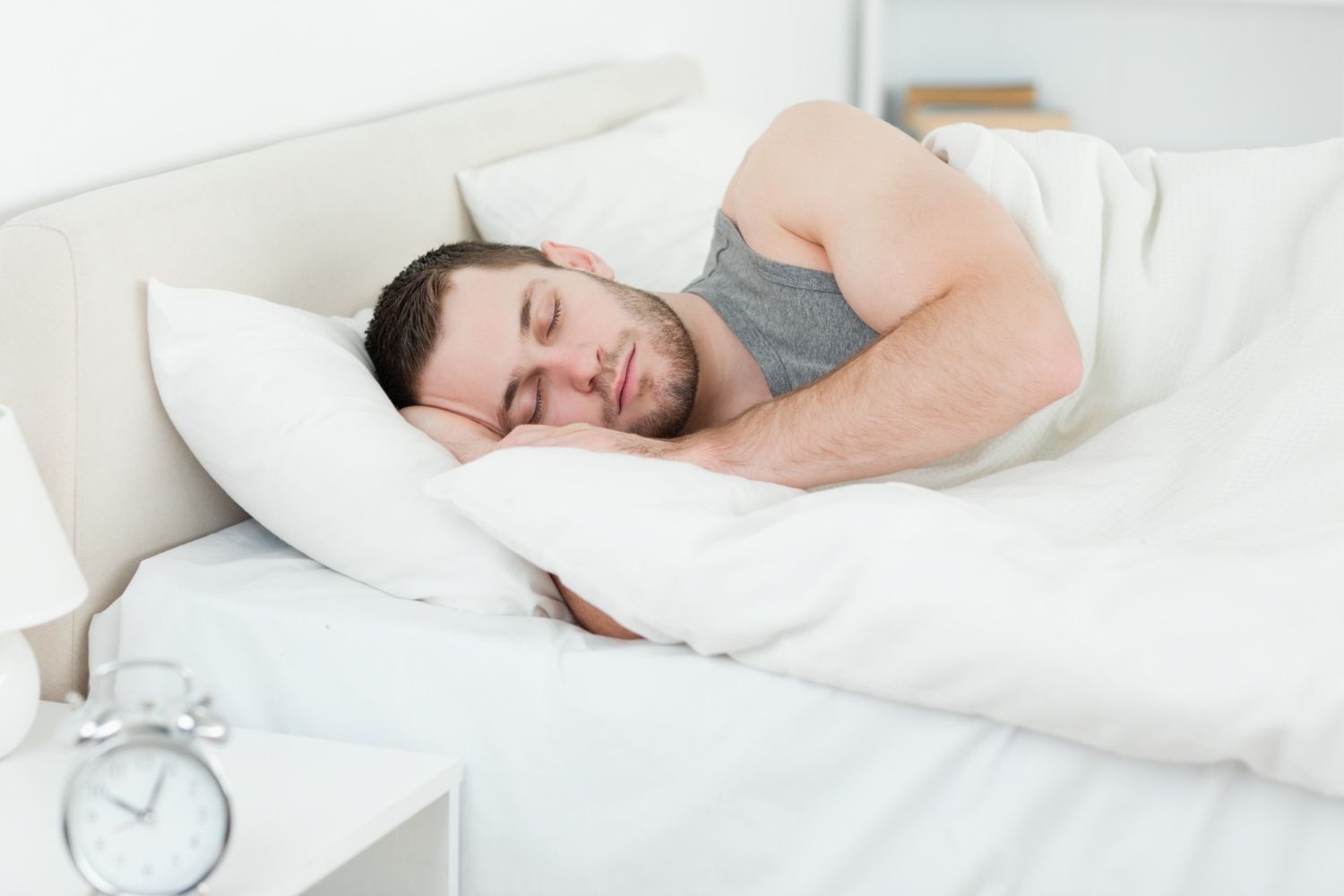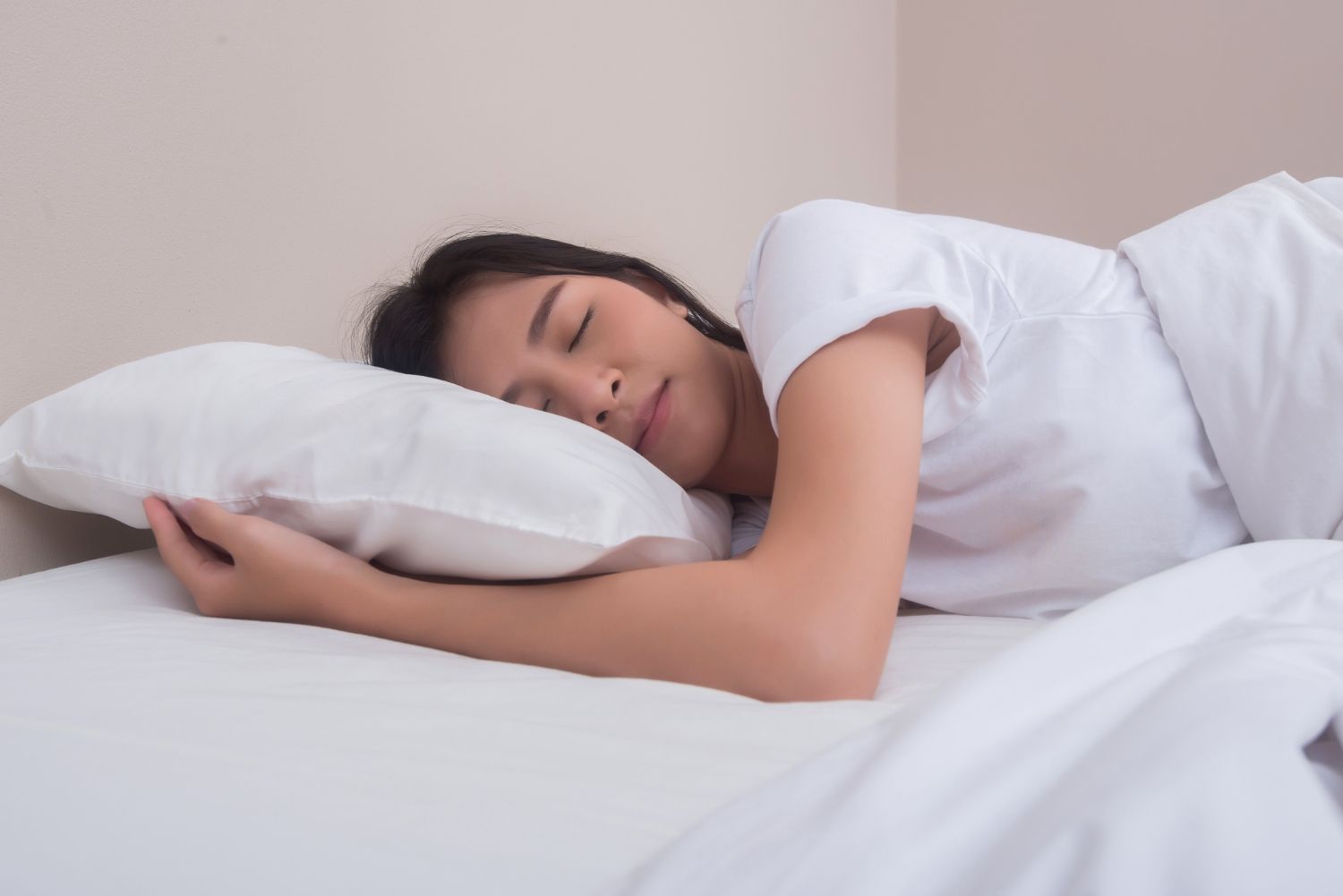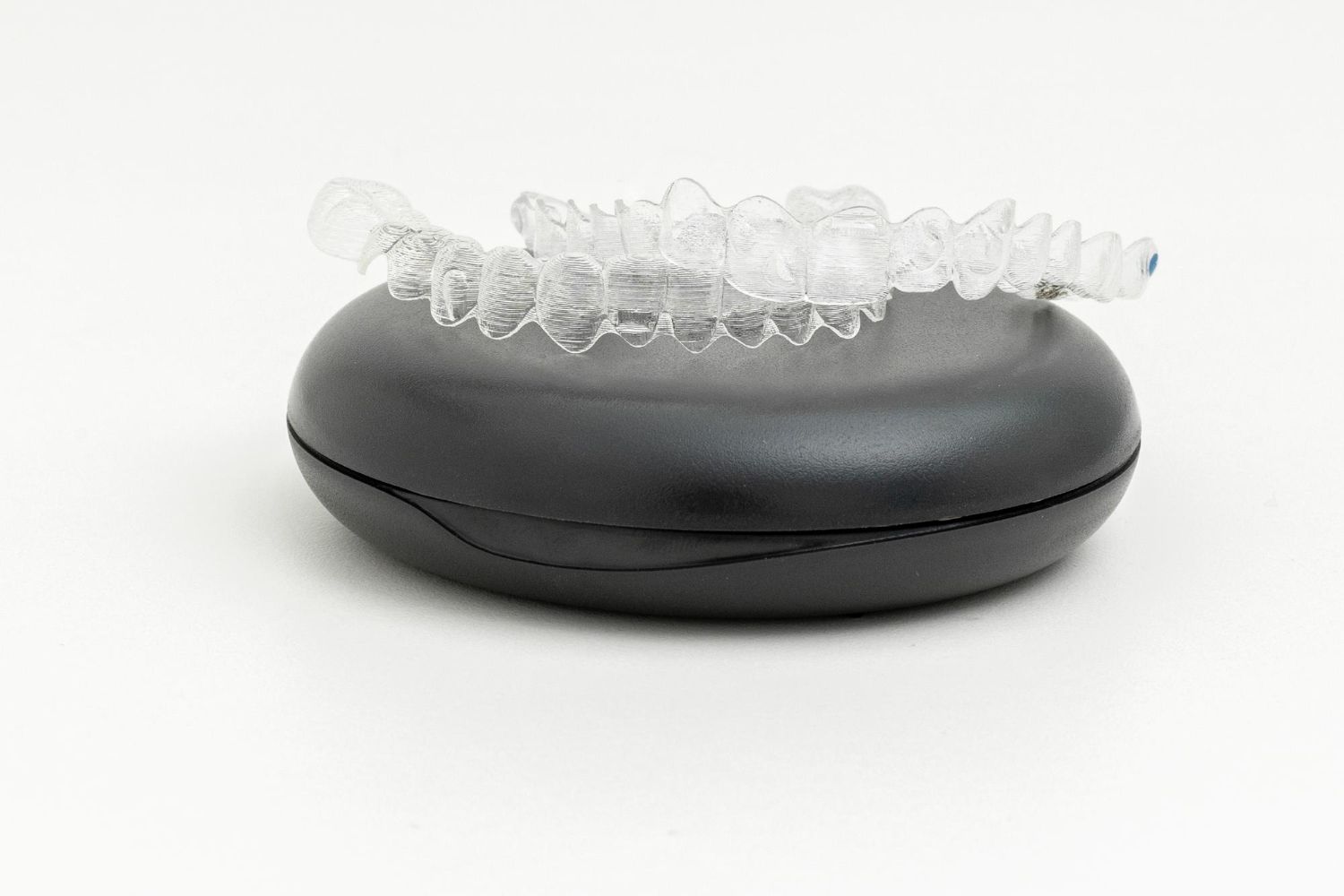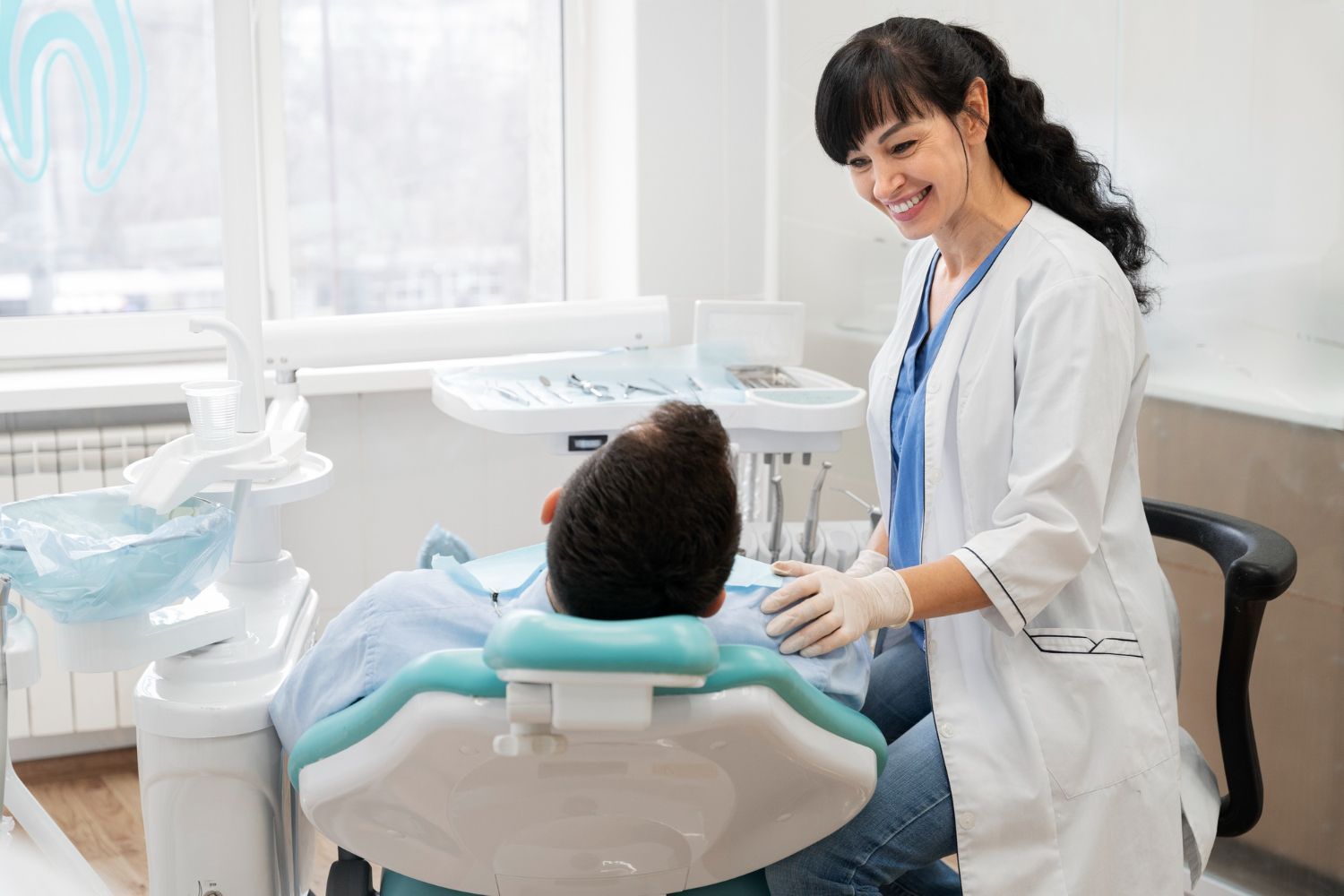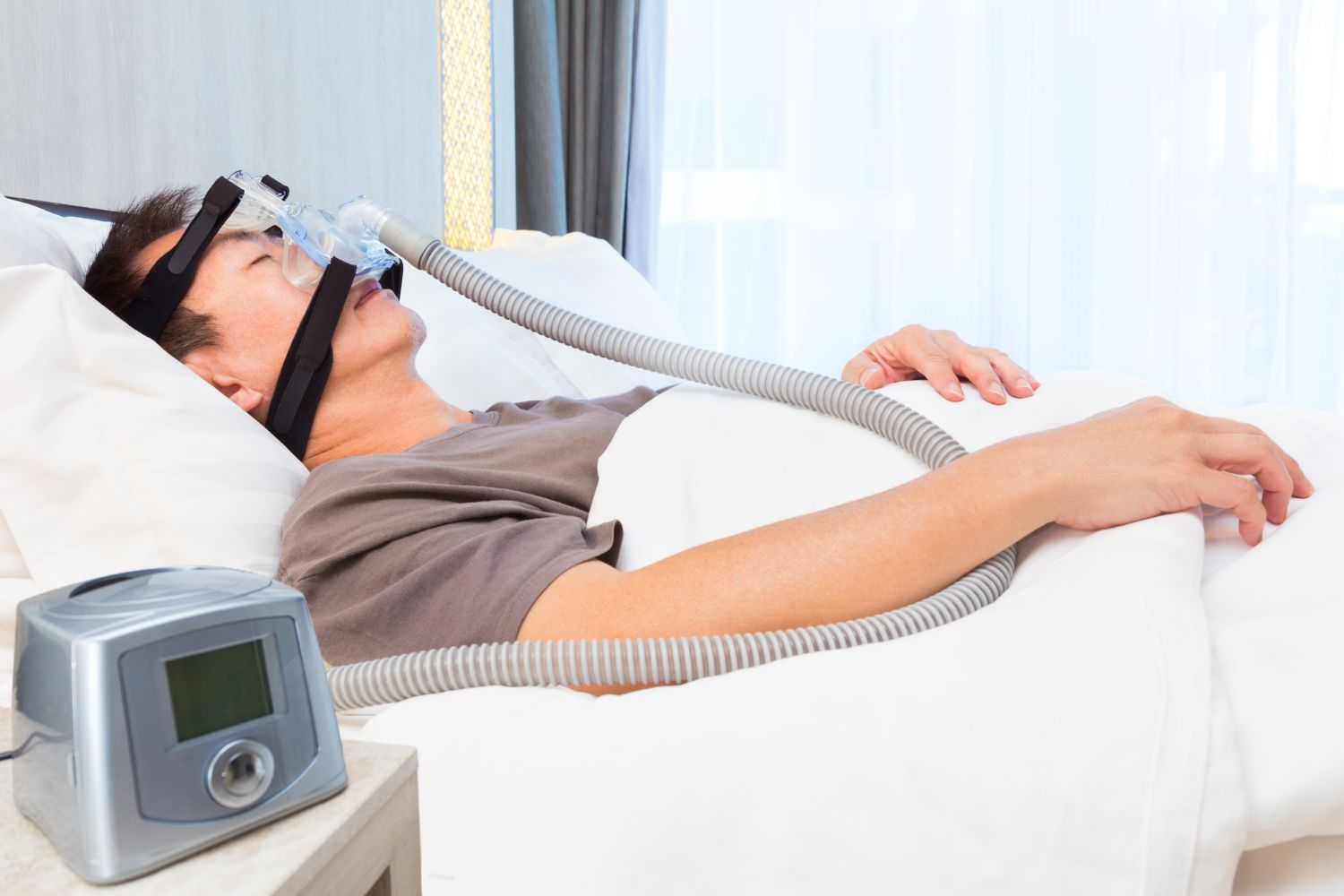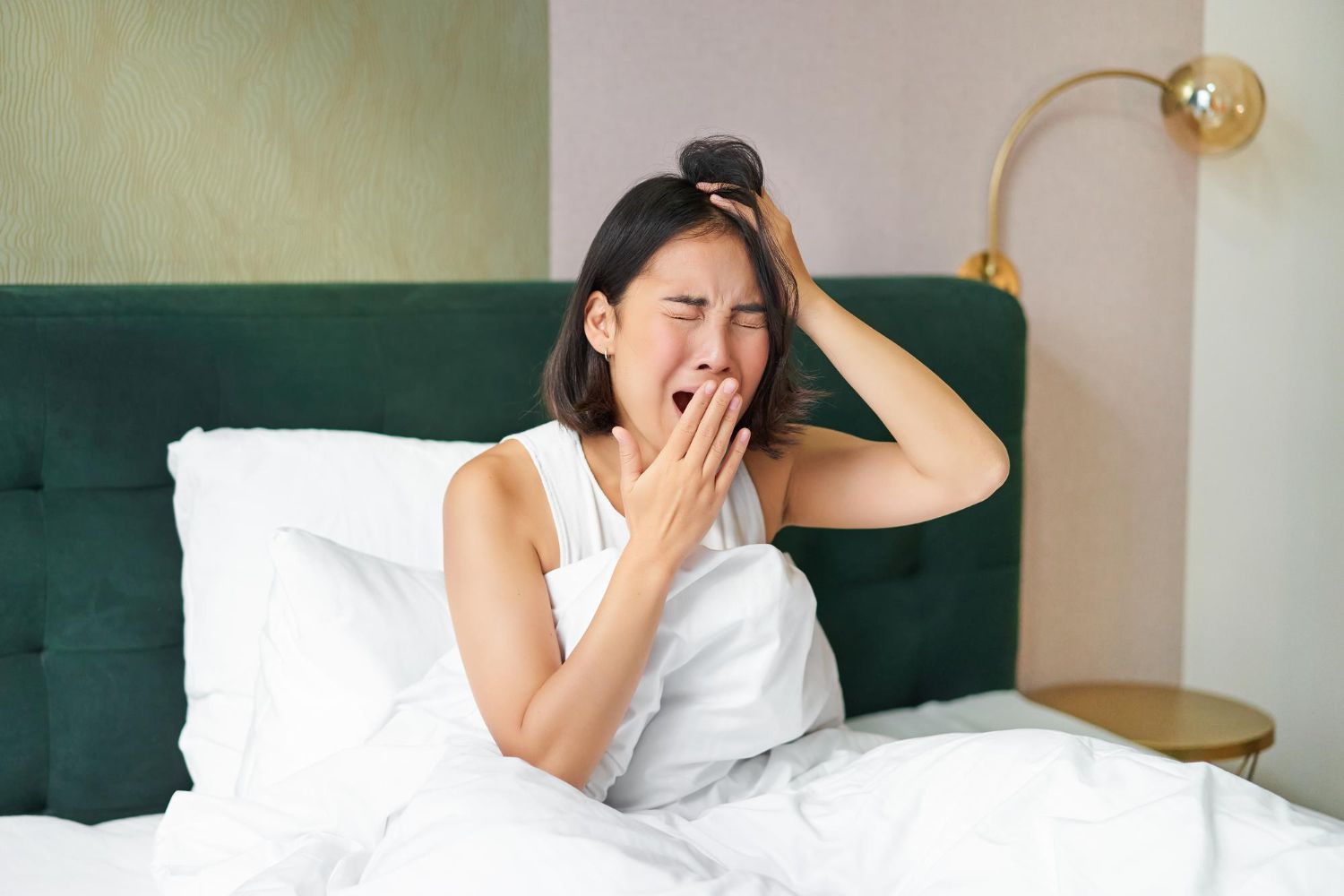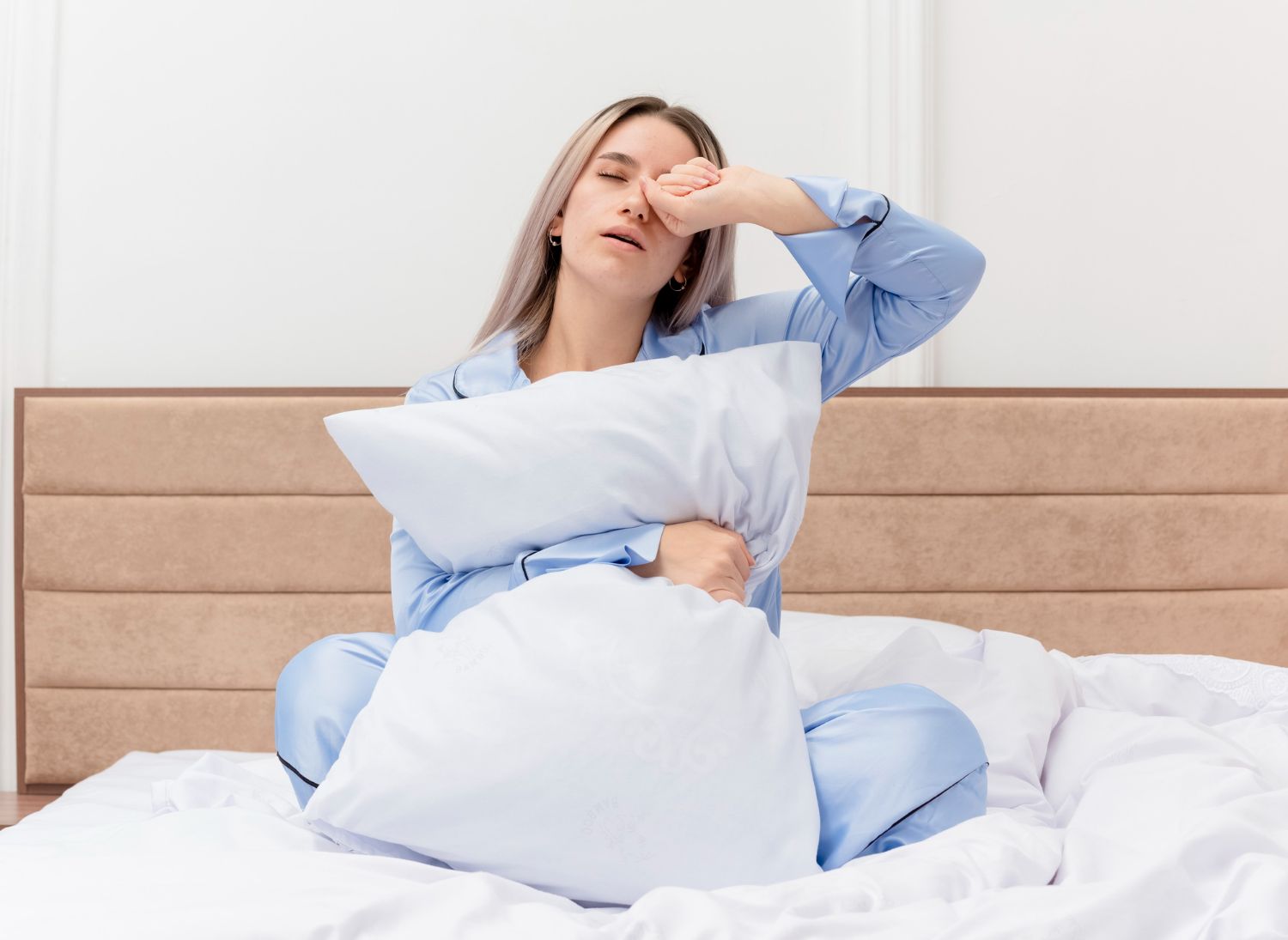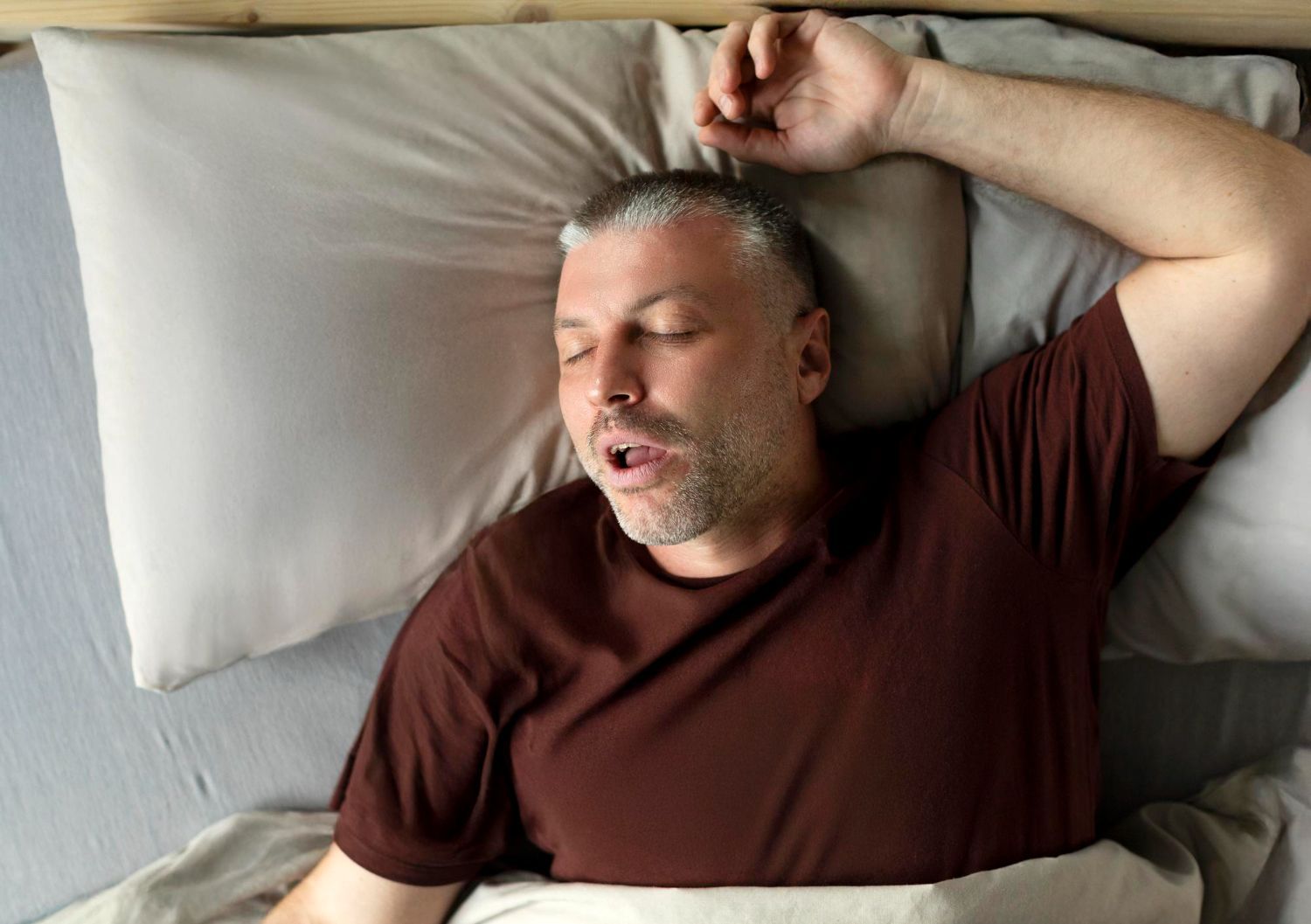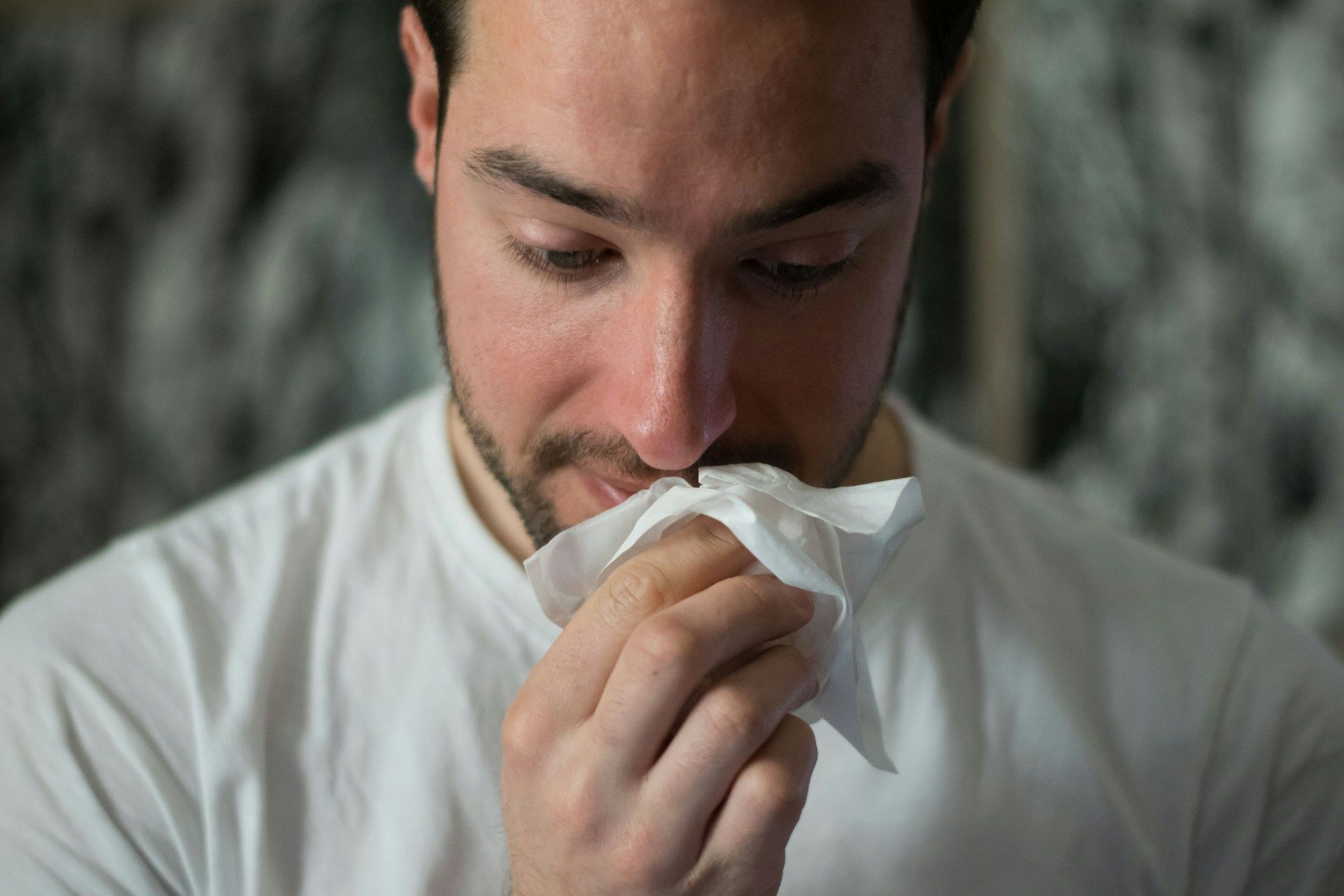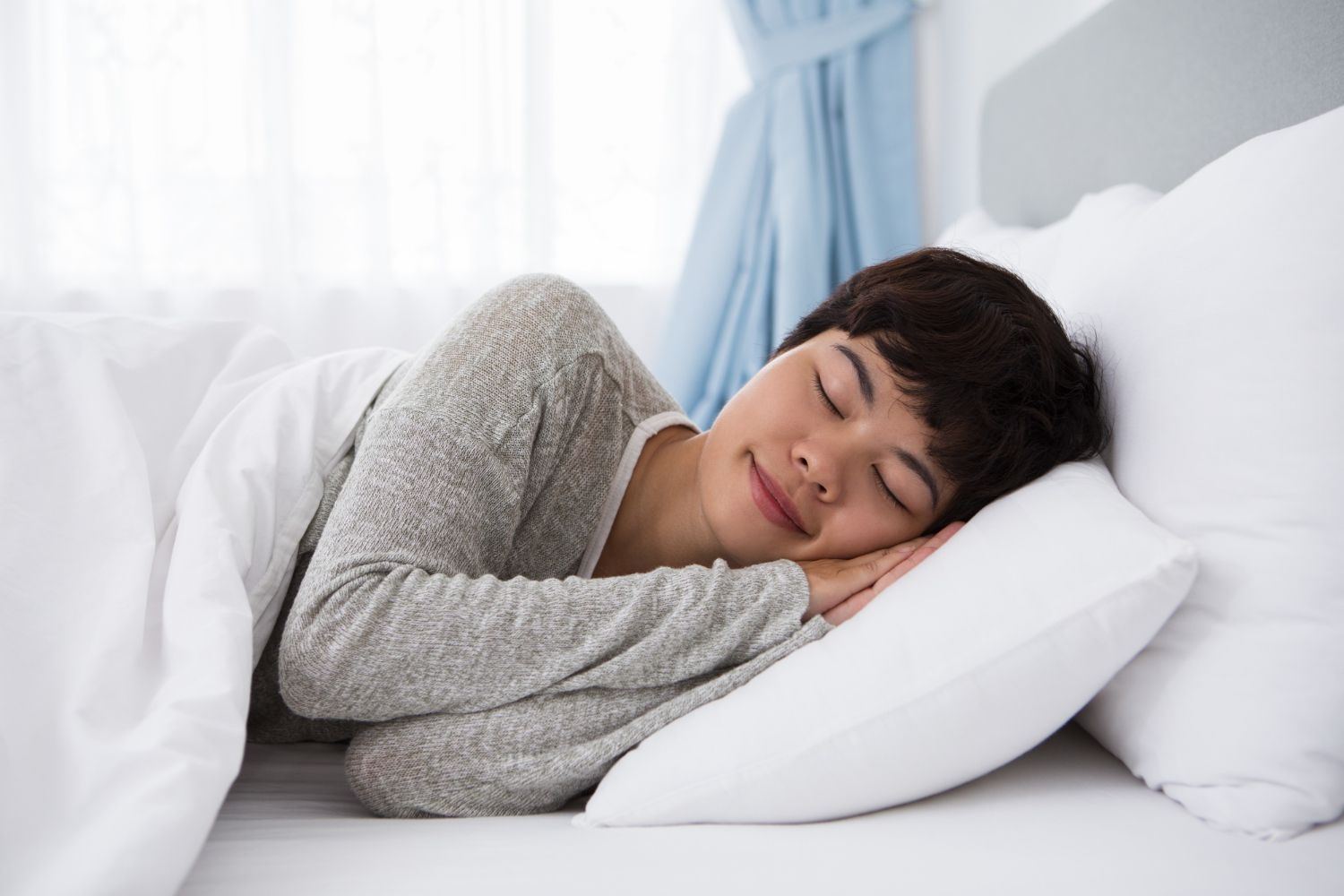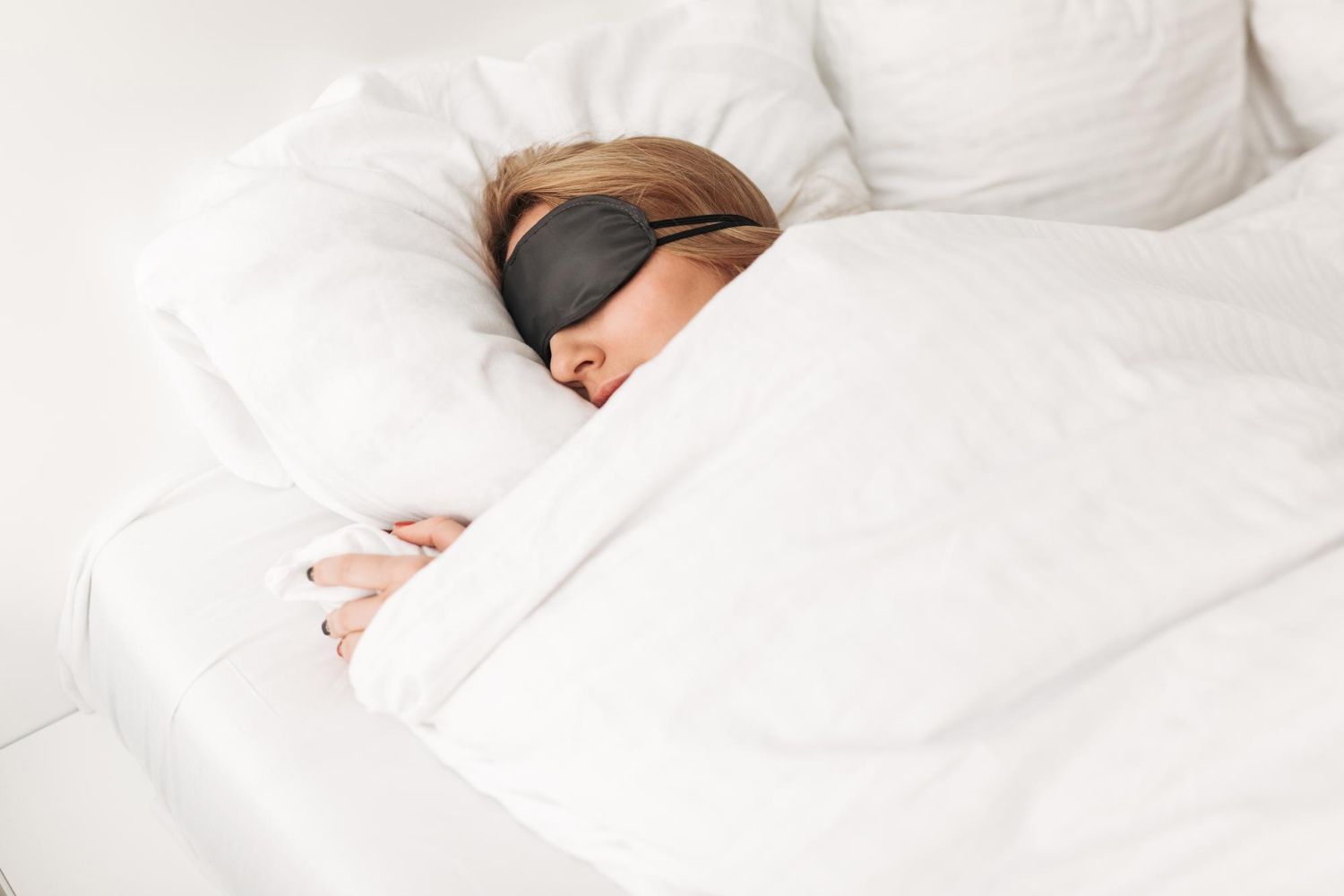Blog Articles
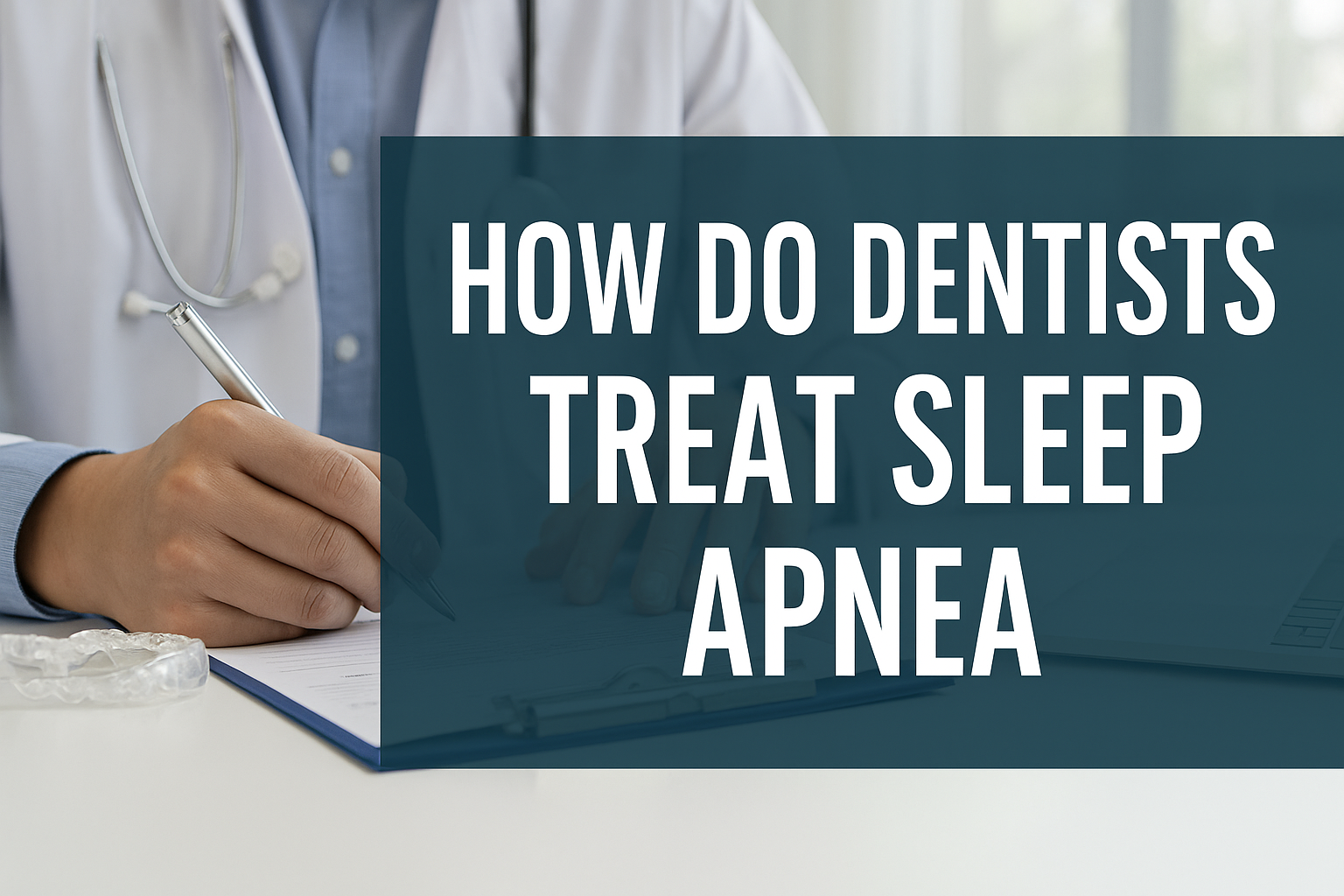
When most people hear “sleep apnea,” they immediately think of pulmonologists or sleep centers and CPAP machines. However, dentists — especially those trained in dental sleep medicine — play a critical role in diagnosing, treating, and managing many cases of obstructive sleep apnea (OSA). In this article, we explore how dentists treat sleep apnea , what oral appliance therapy involves, how dentists collaborate with sleep physicians, and what patients can expect before, during, and after treatment. 1. The Dentist’s Role in Sleep Apnea Care Dentists with specialized training in dental sleep medicine may help in various phases of sleep apnea care: Screening & risk evaluation : During routine dental exams, dentists can look for anatomical risk markers: large tongues, narrow airway space, retrognathia (receded jaw), high-arched palate, crowded or missing teeth, and reports of snoring or nocturnal breathing pauses. ( Ada Association ) Referral & diagnosis integrator : Dentists coordinate with a patient’s physician or sleep specialist to interpret sleep test results (home sleep test or in-lab polysomnography). ( aadsm.org ) Designing and fitting oral appliances : Once the diagnosis is confirmed and a prescription is issued, the dentist fabricates, fits, and adjusts a custom oral appliance that helps maintain airway patency during sleep. ( aadsm.org ) Follow-up, monitoring & adjustments : After delivery, dentists monitor patient comfort, compliance, side effects (jaw soreness, bite changes, tooth movement), and may order follow-up sleep tests to verify efficacy. ( aadsm.org ) Dentists operating in dental sleep medicine often hold credentials recognized by the American Academy of Dental Sleep Medicine (AADSM) or board-level qualification (Diplomate of the American Board of Dental Sleep Medicine). ( aadsm.org ) 2. Oral Appliance Therapy: The Core Dental Treatment The primary tool dentists use in sleep apnea treatment is oral appliance therapy (OAT) — especially for patients with mild-to-moderate OSA or those intolerant of CPAP. ( Sleep Education ) How It Works Oral appliances—often mandibular advancement devices (MADs)—hold the lower jaw forward (and sometimes stabilize the tongue) so that the upper airway remains open during sleep. ( Sleep Education ) Some features and types: Custom vs non-custom : Custom, titratable appliances produced by a dentist outperform over-the-counter “boil-and-bite” devices in comfort, compliance, and effectiveness. ( Ada Association ) Single-piece vs dual-piece : 2 piece, adjustable appliances are recommended over boil and bite or Monoblock appliances as the Standard of Care. Titration : The dentist adjusts the appliance gradually (forward or back) to find the “therapeutic position” that balances airway opening with comfort. ( aadsm.org ) Advantages of Oral Appliance Therapy Noninvasive & reversible : No surgery required, and the appliance can be discontinued if needed. ( aadsm.org ) Better compliance : Many patients find oral appliances easier to tolerate than CPAP masks, leading to higher nightly use. ( aadsm.org ) Comfort & portability : Small, quiet, and easy to travel with. ( Sleep Education ) Effectiveness : For many patients, OAT reduces the Apnea-Hypopnea Index (AHI), improves oxygen levels, lowers daytime sleepiness, and enhances quality of life. ( Ada Association ) Limitations & Considerations Not As Overpowering As CPAP : With less side effects than pressurized CPAP devices, Less side effects then pressurized CPAP devices, and we have higher compliance then CPAP with less side effects. Side effects : Jaw discomfort, tooth or bite changes, temporomandibular joint (TMJ) symptoms, and irritation of soft tissues. These are usually manageable with adjustments and resolve with use of jaw exercises and a morning bite aligner. Less then 10% of patient discontinue use of an oral appliance due to side effects.. ( aadsm.org ) Need for regular monitoring : Long-term use may cause gradual tooth movement or bite shift, so periodic checks are essential. ( aadsm.org ) Because of these trade-offs, patient selection and compliance are critical. Dentists must follow standards and guidelines (e.g. AADSM standards) to screen, treat, and monitor effectively. ( aadsm.org ) 3. The Dental-Sleep Physician Team: Collaboration Is Key Sleep apnea is a medical condition, and dentists rarely work in isolation. For optimal patient outcomes, a multidisciplinary approach is standard: Prescription & oversight by a physician : A physician (typically a sleep specialist or pulmonologist) issues the diagnosis and prescription for treatment. The dentist’s appliance is part of that medical plan. ( aadsm.org ) Joint guidelines : The AASM and AADSM have published joint clinical guidelines endorsing collaboration between dentists and physicians on oral appliance therapy. ( AASM ) Follow-up sleep testing : After appliance fitting and adjustments, physicians and dentists may order repeat sleep studies or home tests to confirm efficacy and adjust the therapy as needed. ( aadsm.org ) Comprehensive care plans : Many patients benefit from combining dental appliance therapy with weight loss, positional therapy, CPAP in hybrid form (if needed), or surgical options. ( aadsm.org ) This team model ensures the patient’s airway, anatomy, medical risk, and device compliance all align. 4. What the Treatment Process Looks Like (Step by Step) Here’s a generalized pathway a patient might follow at a clinic like Pennsylvania Dental Sleep Medicine (PDSM):
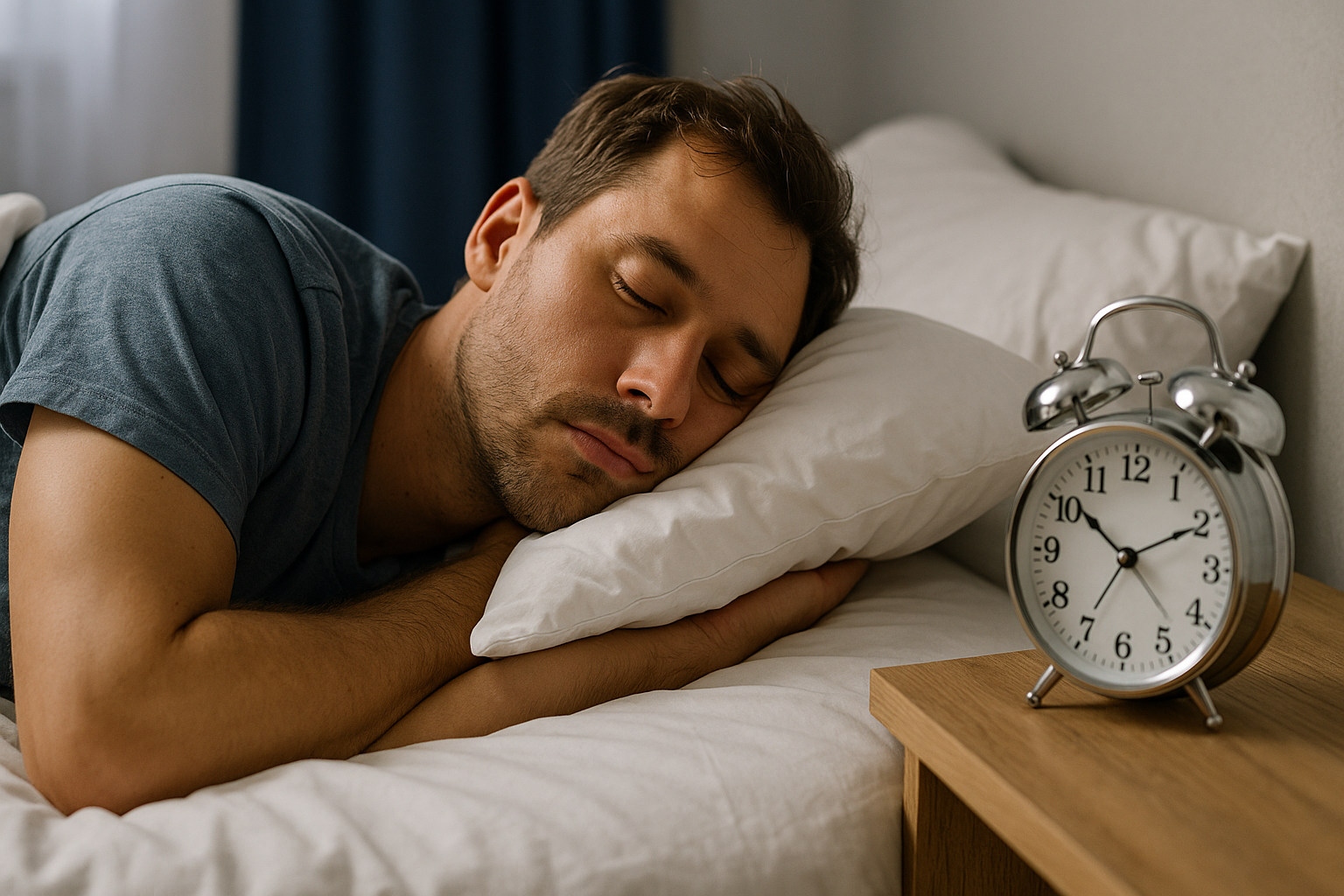
When daylight saving time (DST) rolls around, losing or gaining an hour might seem small, but your body feels it more than you think. Every March and November, millions of Americans struggle with sleep disruption, fatigue, and irritability after the clock change. This one-hour shift can confuse your body’s circadian rhythm , the internal clock that regulates when you feel awake and when you feel sleepy. In fact, studies show that it can take up to a week or more for your body to fully adjust to the new schedule, especially in the spring when we “lose” an hour of sleep. The good news? With a few proactive steps, you can help your body adapt more smoothly to daylight saving time and protect your sleep health. Why Daylight Savings Time Affects Your Sleep Your body runs on a 24-hour internal clock called the circadian rhythm, which is heavily influenced by natural light and darkness. When you suddenly shift the clock forward or backward, your brain’s sleep-wake cycle doesn’t immediately catch up. Dr. Phyllis Zee, Director of the Center for Circadian and Sleep Medicine at Northwestern University, notes that even a one-hour time shift can cause “social jet lag,” where your sleep and wake times no longer match your internal biological clock. This can lead to: Trouble falling asleep or waking up Reduced alertness and concentration Mood changes or irritability Increased risk of accidents, especially during the first few days after the change The Health Risks of Ignoring the Adjustment Transitioning into or out of daylight savings isn’t just about feeling tired—it can have measurable health effects. According to research published in the New England Journal of Medicine , the risk of heart attack increases by about 24% on the Monday following the spring shift. Other studies have linked daylight savings disruptions to higher rates of workplace injuries, car accidents, and poor academic performance. That’s why adjusting proactively, before the time change, can make a big difference in your energy, focus, and safety. How to Prepare for Daylight Savings Time If you want to minimize the impact, start preparing three to five days before the clock changes . These science-backed strategies can help: 1. Gradually Shift Your Sleep Schedule Go to bed and wake up 15–20 minutes earlier each night in the days leading up to daylight savings. This slow adjustment helps your body’s circadian rhythm adapt naturally, reducing the “shock” when the clocks change. 2. Get Morning Sunlight Light exposure is the most powerful cue for your internal clock. After waking up, spend at least 10–15 minutes in natural sunlight —either by taking a walk or sitting near a bright window. Morning light helps signal your brain that it’s time to be awake and alert. 3. Avoid Bright Screens Before Bed Blue light from phones, TVs, and computers can trick your brain into thinking it’s daytime. Try to avoid screens for at least an hour before bed . If you must use devices, enable “night mode” or wear blue-light-blocking glasses. 4. Keep Evenings Calm and Dim As bedtime approaches, lower the lights in your home and avoid stimulating activities. Reading a book, taking a warm shower, or meditating can help signal your body to wind down. 5. Watch What You Eat and Drink Caffeine can stay in your system for up to eight hours , so skip that late-afternoon coffee. Also, avoid heavy meals or alcohol right before bed—both can interfere with quality sleep. 6. Stick to a Routine Consistency helps reinforce your circadian rhythm. Try to go to bed and wake up at the same time every day—even on weekends—to help your body adjust faster. The Role of Good Sleep Hygiene Daylight savings is a good reminder to check in on your overall sleep habits. The American Academy of Sleep Medicine (AASM) recommends these general guidelines: Keep your bedroom cool, quiet, and dark. Use your bed only for sleep and relaxation (not work or screens). Avoid long daytime naps. If you can’t fall asleep within 20 minutes, get up and do something relaxing until you feel tired. Even beyond the time change, good sleep hygiene helps you recover from fatigue, strengthen your immune system, and maintain stable mood and focus throughout the year. What If You’re Still Struggling? If, after a week, you still feel excessively tired, irritable, or notice changes in your focus or breathing during sleep, it might not just be the clock change. These can also be signs of an underlying sleep disorder , such as sleep apnea —a condition where breathing repeatedly stops and starts during sleep. If you suspect this might be the case, schedule an evaluation with a sleep specialist or sleep apnea dentist who can help determine if treatment could improve your energy and rest. Adjusting to daylight savings time doesn’t have to leave you exhausted. By preparing early, optimizing your sleep environment, and staying consistent with your schedule, you can help your body transition smoothly—and even improve your long-term sleep health in the process. Remember: small habits, practiced daily, make a big difference. A good night’s rest isn’t just about the clock—it’s about protecting your health, focus, and well-being every day of the year.


